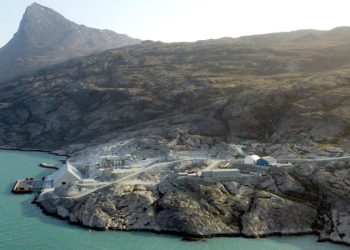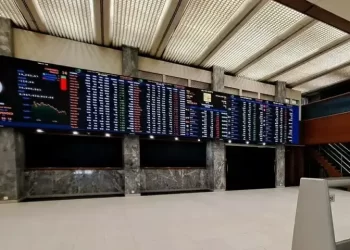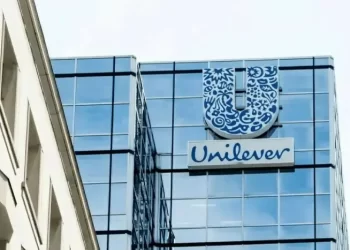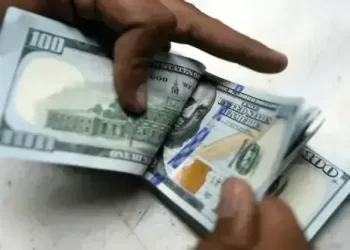The Pakistan Business Council (PBC), the country’s largest corporate sector advocacy platform, has called for the removal of 1% Capital Value Tax (CVT) on foreign assets of persons residing or taking up residence in Pakistan.
“Tax on foreign income can remain, but CVT or wealth tax on foreign assets should be removed since this is a tax doing more long-term harm to the country than gain,” the PBC said in its policy statement, a copy of which is available with media.
The PBC informed that the CVT is in addition to the income tax persons residing or taking up residence in Pakistan will pay on any income earned on these assets.
The CVT was imposed in year 2022 and requires payment of 1% every year to the Federal Board of Revenue (FBR) on the assets outside Pakistan.
The council in its policy statement expressed that the imposition of CVT is preventing Pakistani professionals abroad from taking up jobs in their homeland.
“Why will they move to Pakistan to take up jobs in Pakistan, when on the assets and properties they have accumulated while working outside they have to pay 1% on this wealth every year,” it said, adding that due to this tax, Pakistan loses its ability to attract back persons who have developed expertise i.e. doctors, bankers, consultants, and other experts.
Recovery of CVT under Finance Act 2022: Taxmen’s orders are without jurisdiction: former FBR chief
The PBC said incentivising current professionals who moved to Pakistan before year 2022, to again move out of Pakistan will lead to brain drain.
It said that the CVT is preventing Pakistanis abroad to move back to their home country to be with their aging parents, which is “really heartbreaking but then some people would prefer to send the money saved in the CVT to their parents rather than moving themselves.”
The PBC further elaborated that the imposition of CVT is preventing Pakistanis abroad to move to Pakistan after retiring from their professional life, unless they are handicapped or not fit.
On the other hand, the imposition of this capital value tax is incentivising many entrepreneurs to move themselves or get their family members move out of Pakistan. “Meaning entrepreneurs spend more time outside Pakistan so automatically get more ideas and time to expand business out of Pakistan and less in Pakistan,” PBC highlighted.
The council stated that if the government penalizes these individuals by amending residency rules or by imposing further penalties then “they will spend more time outside and not invest at all further in Pakistan
“They may give up Pakistan nationality, setting a bad example for local and foreign investors for invest in Pakistan,” PBC warned.
“So 1% CVT on foreign assets is leading to brain drain loss for Pakistan of foreign trained professionals and of some entrepreneurs. As well as loss of money to Pakistan which otherwise they and their children will invest and spend in Pakistan as well as pay income tax to Pakistan on the earnings of these foreign assets,” PBC concluded.
The Pakistan Business Council (PBC), the country’s largest corporate sector advocacy platform, has called for the removal of 1% Capital Value Tax (CVT) on foreign assets of persons residing or taking up residence in Pakistan.
“Tax on foreign income can remain, but CVT or wealth tax on foreign assets should be removed since this is a tax doing more long-term harm to the country than gain,” the PBC said in its policy statement, a copy of which is available with media.
The PBC informed that the CVT is in addition to the income tax persons residing or taking up residence in Pakistan will pay on any income earned on these assets.
The CVT was imposed in year 2022 and requires payment of 1% every year to the Federal Board of Revenue (FBR) on the assets outside Pakistan.
The council in its policy statement expressed that the imposition of CVT is preventing Pakistani professionals abroad from taking up jobs in their homeland.
“Why will they move to Pakistan to take up jobs in Pakistan, when on the assets and properties they have accumulated while working outside they have to pay 1% on this wealth every year,” it said, adding that due to this tax, Pakistan loses its ability to attract back persons who have developed expertise i.e. doctors, bankers, consultants, and other experts.
Recovery of CVT under Finance Act 2022: Taxmen’s orders are without jurisdiction: former FBR chief
The PBC said incentivising current professionals who moved to Pakistan before year 2022, to again move out of Pakistan will lead to brain drain.
It said that the CVT is preventing Pakistanis abroad to move back to their home country to be with their aging parents, which is “really heartbreaking but then some people would prefer to send the money saved in the CVT to their parents rather than moving themselves.”
The PBC further elaborated that the imposition of CVT is preventing Pakistanis abroad to move to Pakistan after retiring from their professional life, unless they are handicapped or not fit.
On the other hand, the imposition of this capital value tax is incentivising many entrepreneurs to move themselves or get their family members move out of Pakistan. “Meaning entrepreneurs spend more time outside Pakistan so automatically get more ideas and time to expand business out of Pakistan and less in Pakistan,” PBC highlighted.
The council stated that if the government penalizes these individuals by amending residency rules or by imposing further penalties then “they will spend more time outside and not invest at all further in Pakistan
“They may give up Pakistan nationality, setting a bad example for local and foreign investors for invest in Pakistan,” PBC warned.
“So 1% CVT on foreign assets is leading to brain drain loss for Pakistan of foreign trained professionals and of some entrepreneurs. As well as loss of money to Pakistan which otherwise they and their children will invest and spend in Pakistan as well as pay income tax to Pakistan on the earnings of these foreign assets,” PBC concluded.









